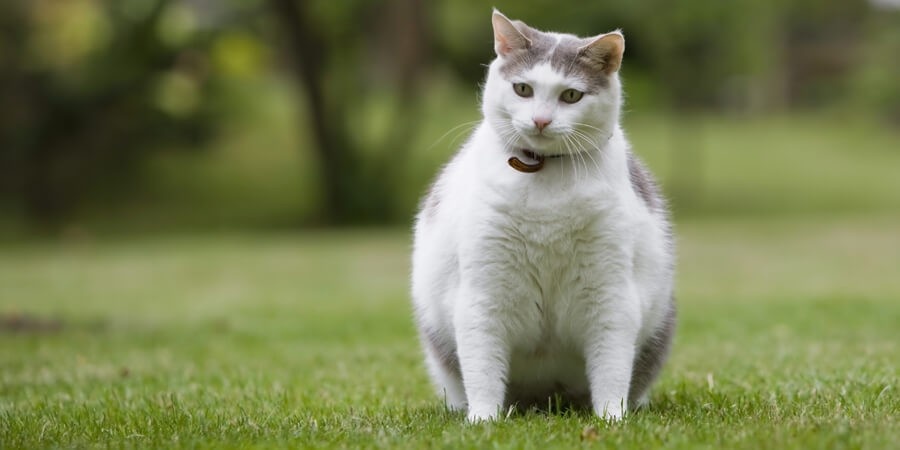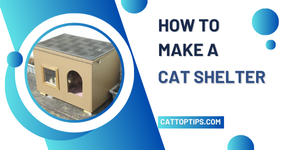Sometimes, a cat needs a little help to gain weight, especially if they’re underweight or have been through an illness. While it might seem like simply feeding more food is the answer, healthy weight gain for cats involves more than just adding extra treats or meals. By using the right foods and creating a stress-free eating environment, you can help your cat gain weight in a way that keeps them happy and healthy. Here, we’ll share some easy, effective tips on how to make your cat fat safely.

1. Talk to Your Vet First
Before you make changes to your cat’s diet, it’s best to visit the vet. Sudden weight loss or a consistently low weight can sometimes be a sign of a health issue like thyroid problems or digestive troubles. A vet can rule out health problems and suggest the best way to help your cat gain weight.
2. Choose High-Calorie, Nutritious Foods
To help your cat gain weight, look for food that is rich in calories, proteins, and healthy fats.
- How to Make Your Cat Fat and Fluffy: High-protein, high-fat cat food can help build muscle, promote a shiny coat, and help your cat look fluffy and full. Try using canned or wet food, which is often higher in calories and has a tempting smell cats love.
- Add Toppers or Supplements: Mixing in food toppers like tuna or salmon oil can make the food more delicious and add extra calories. Some toppers are designed just for weight gain, so check with your vet if a supplement might be right for your cat.
3. Feed Smaller, More Frequent Meals
If you’re only feeding your cat once or twice a day, try breaking up their meals into smaller portions fed more often. This can keep their energy levels steady and increase their calorie intake without overwhelming their stomach.
How It Helps: Feeding smaller, frequent meals is like mimicking their natural hunting pattern. Cats tend to eat small amounts frequently in the wild, and this approach can encourage healthy weight gain.
4. Choose Tasty, High-Quality Treats
Treats can be a big help when trying to get your cat to gain weight. Look for high-quality, meaty treats with real ingredients like chicken, fish, or turkey.
Avoid Junk Treats: Some cat treats have fillers that don’t add much nutrition. Instead, pick treats with real meat or protein sources, which will add more calories and help with healthy weight gain.
5. Make Eating Comfortable
If your cat is uncomfortable or stressed, they may not eat as much as they should. Place their food bowl in a quiet, safe spot where they won’t be interrupted.
Create a Calm Environment: Cats like to feel safe when they eat. If your cat is easily startled, try feeding them in a quiet corner of the house away from noise and other pets. Fresh, clean food and water can also make meals more appealing.
6. Exercise to Build Muscle, Not Just Fat
While it may seem like exercise is only for weight loss, it’s also a great way to help your cat build muscle. Short play sessions can boost your cat’s appetite and keep them from putting on unhealthy weight.
Encourage Playtime: Even if you’re focused on helping your cat gain weight, a bit of playtime can do wonders. Interactive toys like feather wands or laser pointers can help keep your cat active and hungry.
7. Monitor Your Cat’s Progress
Tracking your cat’s weight gain is essential to make sure they’re not gaining weight too fast or too slow. You don’t want your cat to become overweight either.
- Adjust as Needed: Regularly check your cat’s weight, and adjust their meals or treats as needed. This way, you can keep them on a safe path to a healthy weight. If your cat is gaining too quickly or struggling to gain weight, check back with your vet.
Additional Tips for a Healthy Weight Gain Journey
- Keep Fresh Water Available: Staying hydrated helps with digestion and overall health. Make sure your cat always has fresh water available.
Create a Routine: Cats thrive on routine, so feeding them at the same times each day can help them feel secure and boost their appetite.
Try Different Foods: If your cat seems bored with their food, try different flavors or textures. Some cats prefer shredded or pate-style foods, so mix it up to find what they like best.
Avoid Foods Meant for Humans: While it’s tempting to share people food, many foods that are safe for humans aren’t safe for cats. Stick to cat-specific foods and treats for the best results.
FAQs
1. Can I feed my cat human food to help them gain weight?
It’s best to stick to cat-specific food, as human food can upset their stomach or even be toxic. Choose high-protein cat food and treats instead to promote safe, healthy weight gain.
2. How long will it take for my cat to gain weight?
Healthy weight gain can take a few weeks to a few months, depending on your cat’s starting weight and metabolism. Aim for gradual weight gain by feeding nutritious, calorie-dense meals.
3. Are high-calorie treats safe for my cat?
Yes, high-calorie treats made for cats are safe when given in moderation. Look for natural, high-protein treats without fillers, and avoid treats with artificial additives for the healthiest option.
4. How much food should I give my cat to gain weight?
It depends on your cat’s age, size, and activity level. Consulting your vet can help you decide on portion sizes, but generally, smaller, frequent meals work best for weight gain.
5. Will exercise cause my cat to lose weight?
Light exercise won’t cause weight loss but can help build muscle, which gives a fuller, healthier appearance. Short play sessions
also help increase your cat’s appetite and keep them mentally stimulated.
6. Can kittens follow the same weight gain plan as adult cats?
Kittens need more frequent, calorie-rich meals naturally. They may need additional food, but always consult your vet to adjust portion sizes and ensure they receive the right nutrients.
7. Is wet or dry food better for weight gain?
Wet food is generally higher in calories and more palatable, making it an effective option for weight gain. Adding high-protein kibble can also provide extra calories and variety in textures.
Conclusion
Helping your cat gain weight is a process that requires patience and attention. By choosing the right foods, feeding them more frequently, and creating a calm eating environment, you can help your cat gain weight in a healthy way. Remember, each cat is different, so finding what works best may take some time. For more tips on caring for your cat’s health and wellness, be sure to check out cattoptips.


